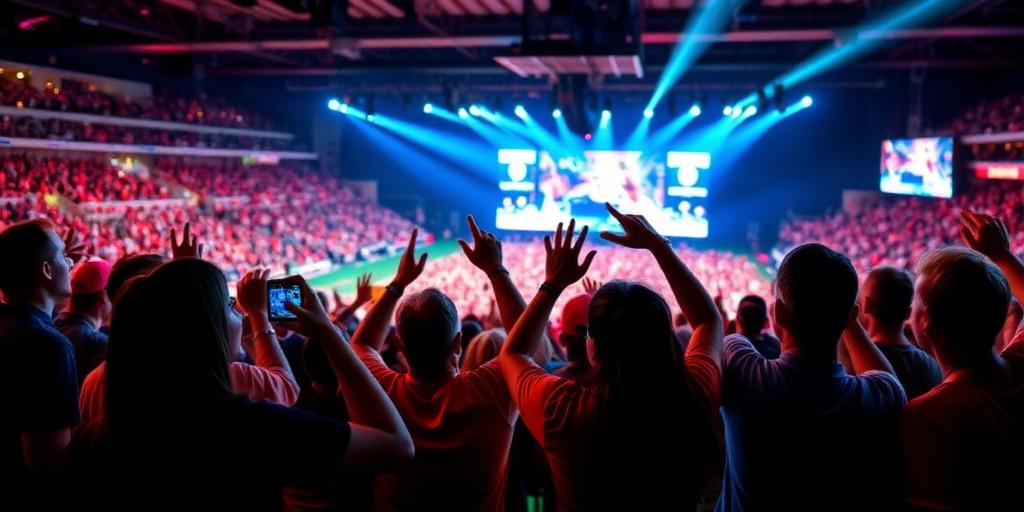Personalized Fan Experiences: The Future of Engagement
The sports and entertainment industries are evolving rapidly, and with them, so are the expectations of fans. No longer content with simply watching a game or listening to music, fans crave deeper, more personalized engagement. This shift is driving a revolution in how teams, artists, and brands connect with their audiences. Let’s delve into how personalized fan experiences are reshaping the future of engagement.
The Demand for Personalization
In today’s digital age, consumers are accustomed to personalized experiences in nearly every aspect of their lives. From tailored recommendations on streaming services to customized shopping experiences, individuals expect brands to understand their preferences and cater to their unique needs. This expectation extends to the realm of sports and entertainment, where fans are seeking more than just generic interactions.
What are Personalized Fan Experiences?
Personalized fan experiences involve tailoring interactions and offerings to individual fans based on their preferences, behaviors, and demographics. This can take many forms, including:
- Customized Content: Delivering content that aligns with a fan’s interests, such as highlights of their favorite players or genres of music.
- Exclusive Access: Providing early access to tickets, merchandise, or events for loyal fans.
- Targeted Offers: Offering discounts or promotions based on a fan’s purchase history or preferences.
- Interactive Experiences: Creating opportunities for fans to interact directly with athletes, artists, or other fans through online forums, Q&A sessions, or virtual meet-and-greets.
- Loyalty Programs: Rewarding fans for their continued support through points, badges, or other incentives.
Benefits of Personalized Fan Experiences
Implementing personalized fan experiences can yield numerous benefits for sports teams, artists, and brands, including:
- Increased Engagement: Personalized experiences capture fans’ attention and keep them coming back for more.
- Enhanced Loyalty: When fans feel valued and understood, they are more likely to remain loyal to a team, artist, or brand.
- Improved Revenue: Personalized offers and recommendations can drive sales of tickets, merchandise, and other products.
- Deeper Insights: By tracking fan behavior and preferences, organizations can gain valuable insights into their audience.
- Stronger Brand Affinity: Personalized experiences create a sense of connection and belonging, strengthening the relationship between fans and the brands they support.
Strategies for Implementing Personalized Fan Experiences
To effectively implement personalized fan experiences, organizations need to:
- Collect and Analyze Data: Gather data on fan demographics, preferences, behaviors, and interactions across various touchpoints.
- Segment Your Audience: Divide your audience into distinct segments based on shared characteristics and interests.
- Develop Targeted Content and Offers: Create content and offers that resonate with each segment of your audience.
- Utilize Technology: Leverage technology platforms, such as CRM systems, marketing automation tools, and data analytics platforms, to deliver personalized experiences at scale.
- Continuously Monitor and Optimize: Track the performance of your personalization efforts and make adjustments as needed to improve results.
Examples of Personalized Fan Experiences
Several organizations have already begun implementing personalized fan experiences with great success. For example:
- Sports Teams: Teams are using data analytics to identify fans who are most likely to purchase tickets and then sending them targeted offers based on their preferences.
- Music Artists: Artists are using streaming data to understand which songs are most popular among their fans and then tailoring their live performances accordingly.
- Brands: Brands are partnering with sports teams and artists to create personalized experiences for fans, such as exclusive access to events or customized merchandise.
The Future of Fan Engagement
As technology continues to evolve, the possibilities for personalized fan experiences are endless. In the future, we can expect to see even more sophisticated and immersive experiences that blur the lines between the physical and digital worlds. From augmented reality experiences at live events to personalized virtual reality content, the future of fan engagement is bright.
In conclusion, personalized fan experiences represent the future of engagement in the sports and entertainment industries. By understanding their fans’ preferences and tailoring their interactions accordingly, organizations can build stronger relationships, increase revenue, and create lasting memories.
